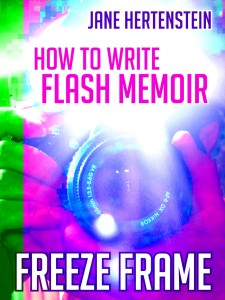
By Stan Friedman
CHICAGO, IL (December 31, 2014) — Covenanters are beginning to use a new but growing genre of literature known as flash as a way of expressing themselves, experiencing their own lives, and better understanding their faith.
 There is no widely accepted definition of flash, but the focus is on brevity with as few as six words and no more than a thousand. In fact just listing the alternative names of flash requires more words than some flash writing: “micro writing,” “short short writing,” “postcard writing,” “nanowriting.”
There is no widely accepted definition of flash, but the focus is on brevity with as few as six words and no more than a thousand. In fact just listing the alternative names of flash requires more words than some flash writing: “micro writing,” “short short writing,” “postcard writing,” “nanowriting.”
Flash first attracted the attention of fiction writers, but it has come to encompass many genres. Members of Vox Venaie, a Covenant congregation in Austin, Texas, were encouraged earlier this year to write their own take on the gospel in 55 words or less and on the Apostle’s Creed in 108 words or less. (The creed is 108 words).
Jane Hertenstein, a longtime member of Jesus People USA Covenant Church, has written flash memoir for various journals and her blog, Memoirous. Last year, she released her ebook, Freeze Frame: How to Write Flash Memoir, in which she describes flash as “a sort of prose haiku where every word counts.”
Covenant News Service interviewed her about why she finds flash important in her life. An example of her writing is included at the end of the story.
SF: How would you describe flash memoir?
JH: Memoirs are personal stories from a period of your life versus an autobiography, which is usually a chronological account of your life. So, flash memoirs are flash-length, personal stories that stick to one small storyline.
SF: You’ve written a novel, Beyond Paradise and a full-length creative nonfiction book, Orphan Girl: The Memoir of a Chicago Bag Lady, which was about a woman who had befriended you. What got you so interested in flash memoir?
JH: I think my writing led me here. After I had written the novel and Orphan Girl, I had ideas for short stories and had about a dozen or so of those accepted into literary journals. Maybe because I’m getting older or my own reading habits are changing because of the Internet—blame the Internet—I began to write shorter and shorter pieces. After I started Memoirous, I began to focus on flash memoir, mining material from my everyday life.

SF: Why do you think we want to write our stories?
JH: Often these memories come to us spontaneously, triggered by outside stimuli. That’s the problem with remembering—we have no control over what we forget and what randomly works itself to the surface. Writing or depicting narrative is as old as early man drawing pictures on cave walls. There is something out there, beyond us that we just have to communicate—and if we are lucky it will translate to others.
SF: Can flash memory be a sort of spiritual discipline?
JH: As much as a flash of anything can be a discipline—most memory is undisciplined. Memories come to us sometimes unbidden, and just as we can turn them over to prayer we can also choose to explore them in writing or journaling. The nice thing about flash is that there is not always a beginning, middle, and end required. One of my favorite flash writers is Lydia Davis and sometimes all she does is write about a universal feeling such as watching lobsters at the supermarket paddle around in the tank before being sold, cooked, and eaten. Some flashes are logic exercises, such as exploring the question, “Can a secret also be a lie?” During or after a sermon, if there is time for reflection, might be an excellent time to quickly jot down a flash memoir.
SF: You’ve recently written an ebook 365 Affirmations for Writers. Why did you decide to write daily affirmations?
JH: I’m in a critique group and one of my fellow writers suggested that I work on something like this. I said no, but then changed my mind and decided to give it a try. Critique groups are an excellent way to energize your writing and encourage you to keep at it. 365 Affirmations for the Writers has some tips on starting your own critique group, and when to apply for MFA programs and writer residencies, as well as other bonus material.
SF: Why do you like helping writers?
JH: Writing can be a lonely, solitary activity full of self-doubt. We all need to know we are not in this thing alone.
Washing Clothes
By Jane Hertenstein
Sort of in a sentimental mood today. As I mentioned last week my anniversary is coming up. Twenty-eight years. So I composed this as a tribute, not so much autobiographical but a poetic imagining.
We’ve had a life.
I was thinking about it the other day when I was washing clothes. I took them warm out of the dryer and quick picked the shirts out of the basket. I like to snap them by the shoulders to make sure the wrinkles fall out. I drape them over a bar or hang them on hangars.
We’ve seen and done a lot.
The hems of his pants are frayed, and we’re both going to need to upgrade our wardrobe just as soon as there’s money. I matched the socks and was careful to fold them over so the elastic doesn’t get stretched out.
Just the other day, he remarked what an old couple we are. Not too old, I replied.
It wasn’t too long ago I was trying to get baby barf out of the shoulders of my shirts or washing tiny bibs stiff with rice cereal or rubbing Fels-Naptha into grass-stained knees. She’s doing fine now and washing her own clothes, though I wouldn’t mind if she dropped by for a visit and brought her dirty laundry.
There’s a ghost-ring around the collar and discoloration at the armpits. Not so old that we still can’t work.
A lot of hard work to make a marriage. I know quite a few couples who haven’t made it. Sometimes I think it’s just a matter of luck, a roll of the dice, the stars lining up. I hold a t-shirt up to my cheek and smell the lavender, the spring, the ocean tide or whatever fragrance the box claims. But I know the truth. There is something I can’t put my finger on.
The blood, sweat, and tears. It smells so sweet.

Comments